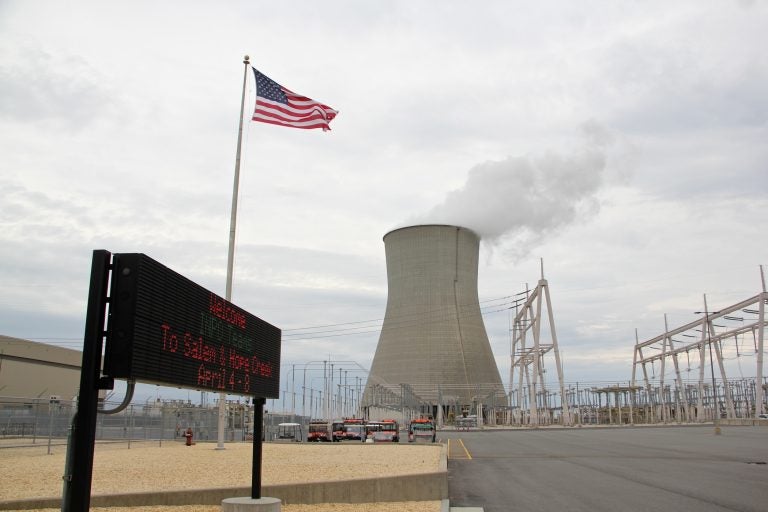N.J. approves $300 million annual subsidy for nuclear industry that threatened shutdown
‘Financially viable’ nuclear reactors to get $900 million infusion from New Jersey over three years. State regulators agreed to the payments in the face of PSE&G’s threats of

Salem Hope Creek nuclear generating station in Salem County. (Emma Lee/WHYY)
New Jersey ratepayers will fork over $300 million annually over the next three years so that PSE&G can continue operating its nuclear reactors. The utility had threatened to shut them without the additional funding.
State regulators said it was critical to keep the nuclear energy industry afloat so residents did not have to rely as heavily on alternative energy sources with harmful emissions, such as natural gas.
“We’re here to save our jobs and continue our carbon-free energy,” said Theresa Widger, a PSE&G employee who works at the Salem nuclear plant.
Yet critics pointed to analyses done by state staffers and a hired consulting firm that both predicted PSE&G could remain financially solvent without the ratepayer-funded infusion.
“Everybody who has taken a look at this is saying that they are, in fact, financially viable and they are, in fact, making money. By threatening to close, they put the commissioners in a terrible position,” said Stefanie Brand, the state’s ratepayer advocate.
In a statement, PSE&G praised the award and said it would save ratepayers money, keep jobs in the state, and avoid environmentally harmful emissions from other energy sources.
The state Board of Public Utilities voted 4-1 Thursday afternoon to give the energy company the subsidy. (Two of the nuclear reactors are co-owned by Exelon.)
Bob Gordon, who sits on the BPU, expressed frustration that the law was written in such a way that the board could only deny the subsidy or give PSE&G the full amount, which will total around $900 million over the three-year period.
“The board is being directed to pay ransom,” he said, “and the hostages are the citizens of New Jersey.”
Gordon ultimately voted in favor of the subsidy.
According to regulators, PSE&G will be able to return to the board in three years and apply for another round of subsidies. The board then will have discretion over how much it awards — or does not.
WHYY is your source for fact-based, in-depth journalism and information. As a nonprofit organization, we rely on financial support from readers like you. Please give today.



